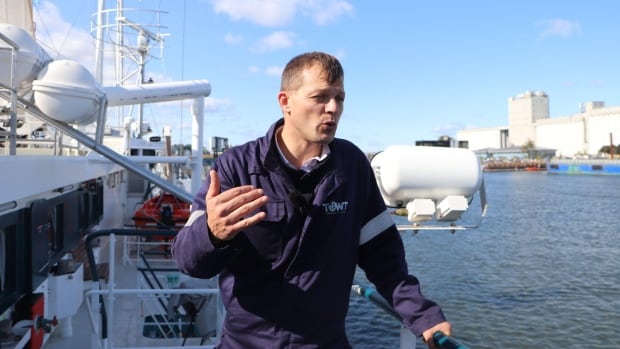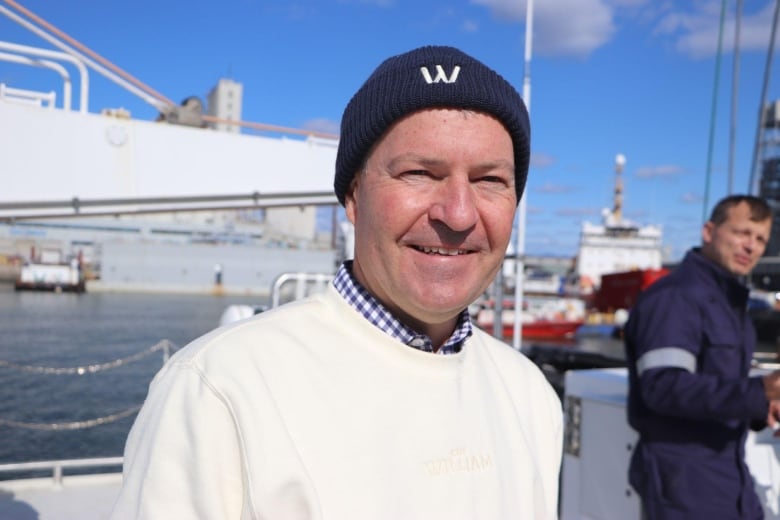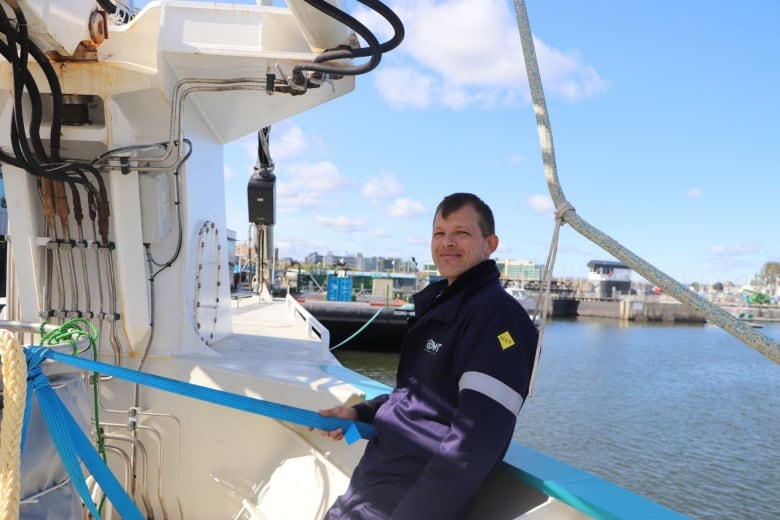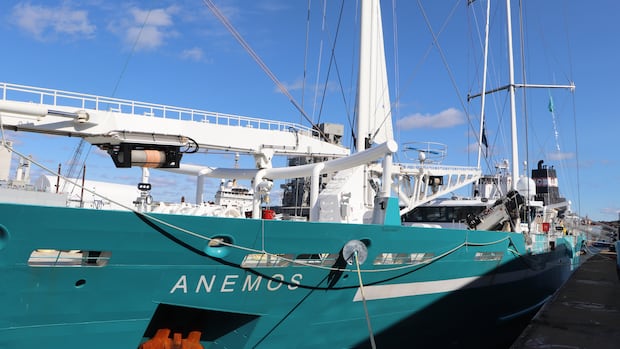
Guillaume Le Grand is trying to bring cargo shipping back to its roots.
Standing on the deck of an 82-metre sailboat docked in Quebec City’s port, Le Grand, a sailor and CEO of the French company TOWT, says he was inspired to harness the natural resources around him.
Hundreds of years ago, ships sailed into the Port of Quebec carrying supplies. This month, that tradition was revived with the Anemos — a modern sailing cargo vessel built by TOWT which can transport up to 830 U.S.-format pallets on board.
“It is not something from the past, but actually for the future in terms of properly decarbonizing shipping,” said Le Grand.
“I’ve always been sort of astounded by the power of wind and we don’t do anything with it instead of just for pleasure-seeking purposes.”
Exporting wine, spirits, jams and other French products to the United States and Canada, part of the shipment arriving through the St. Lawrence River on Oct. 5 carried coffee beans from Colombia for Café William — a business in Quebec’s Eastern Townships.
‘Cleanest form of transportation’
Scheduling is a potential issue with a boat of this kind, says Pascal Raby, vice-president of operations for the Port of Quebec. But he says the port was happy to be part of the premiere of the boat in Quebec.
“[It] is the first time [in] many years that we saw that and for us it’s important to be a partner for this event,” said Raby.
But despite reliability concerns, Serge Picard, Café William’s co-owner, is attracted to the shipping option.
Some companies have found a unique way to reduce their carbon footprints by importing products using a sailing cargo ship, one of which recently stopped in Quebec City.
The company came across TOWT when they started looking for better ways to bring in fair trade coffee from Colombia.
“It’s the cleanest form of transportation [and] one of the oldest ones,” said Picard.
With 325 pallets on board the Anemos, Picard says the boat actually transports his containers faster than a container ship, which would make more stops.

Leaving Santa Marta, Colombia, on Sept. 21, he says it arrived in Quebec City in under 20 days despite variability with the wind.
Is it scalable?
From a supply chain perspective, coffee is one of the commodities that may lend itself well to shipment by sailboat, says Sailbal Ray, a professor of supply chain management at McGill University. That’s because it has a consistent demand throughout the year and can store well.
“But there are many other sectors where the issue of the length of the travel time is a very, very important issue,” said Ray.

He says it will be interesting to see if this type of environmentally sustainable project can be financially sustainable.
“If you think about the larger picture, it will not have a big impact until it can be scalable,” said Ray.
“Can this be done by not one ship … [but] 1,000 ships? That’s the thing because you have to think about the amount of marine transportation.”
Hopes for expansion
The sailboats are slower than a conventional cargo ship, travelling at a speed of about 10.5 knots. But Le Grand says they save time on logistics once they’re docked because there are no shipping containers to unload.
Le Grand hopes to expand his fleet of two sailing cargo vessels as early as 2027. The main hurdle for the company has been coming up against a shipping industry structured around speed and cost.
But he points to the fact that the ship makes fewer stops and requires fewer staff — eight compared to the dozens of crew members on a cargo ship.
“All the companies that we work with, they have very strong initiatives in terms of decarbonizing,” said Le Grand.
“We know our planet is probably going to be unlivable in the forthcoming, you know, just a few centuries or so. So what do you want to do … at least we’re going to try.”
